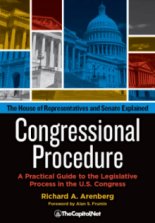Using the Correct Style in Federal Legislative Drafting
When drafting federal legislation, it is important to ensure you are using the correct style. Style refers to the look and feel of a measure. While it might be assumed that style refers to the words that are used, style actually refers to the way in which words are placed on the page, a combination … Read more

